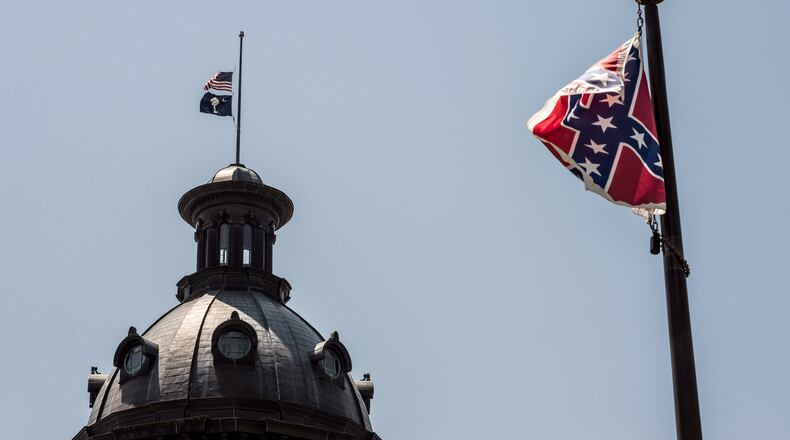This column by Russell Moore, president of the Ethics & Religious Liberty Commission of the Southern Baptist Convention, originally appeared in the Washington Post. It is reprinted here in full with his permission:
This week the nation reels over the murder of praying Christians in an historic African American church in Charleston, S.C. At the same time, one of the issues hurting many is the Confederate battle flag flying at full-mast on the South Carolina Capitol grounds, even in the aftermath of this racist act of violence on innocent people.
This raises the question of what we as Christians ought to think about the Confederate battle flag, given the fact that many of us are from the South.
The flag of my home state of Mississippi contains the battle flag as part of it, and I’m deeply conflicted about that. The flag represents home for me. I love Christ, church and family more than Mississippi, but that’s about it. Even so, that battle flag makes me wince — even though I’m the descendant of Confederate veterans.
Some would say that the Confederate battle flag is simply about heritage, not about hate. Singer Brad Paisley sang that his wearing a Confederate flag on his shirt was just meant to say that he was a Lynyrd Skynyrd fan. Comedian Stephen Colbert quipped, “Little known fact: Jefferson Davis—HUGE Skynyrd fan.”
Defenders of the flag would point out that the United States flag is itself tied up with ugly questions of history. Washington and Jefferson, after all, supported chattel slavery too. The difference is, though, that the United States overcame its sinful support of this wicked system (though tragically late in the game).
The Confederate States of America was not simply about limited government and local autonomy; the Confederate States of America was constitutionally committed to the continuation, with protections of law, to a great evil. The moral enormity of the slavery question is one still viscerally felt today, especially by the descendants of those who were enslaved and persecuted.
The gospel speaks to this. The idea of a human being attempting to “own” another human being is abhorrent in a Christian view of humanity. That should hardly need to be said these days, though it does, given the modern-day slavery enterprises of human trafficking all over the world. In the Scriptures, humanity is given dominion over the creation.
We are not given dominion over our fellow image-bearing human beings (Gen. 1:27-30). The Southern system of chattel slavery was built off of the things the Scripture condemns as wicked: “man-stealing” (1 Tim. 1:10), the theft of another’s labor (Jas. 5:1-6), the breaking up of families, and on and on.
In order to prop up this system, a system that benefited the Mammonism of wealthy planters, Southern religion had to carefully weave a counter-biblical theology that could justify it (the biblically ridiculous “curse of Ham” concept, for instance). In so doing, this form of Southern folk religion was outside of the global and historic teachings of the Christian church.
The abolitionists were right — and they were right not because they were on the right side of history but because they were on the right side of God.
Even beyond that, though, the flag has taken on yet another contextual meaning in the years since. The Confederate battle flag was the emblem of Jim Crow defiance to the civil rights movement, of the Dixiecrat opposition to integration, and of the domestic terrorism of the Ku Klux Klan and the White Citizens’ Councils of our all too recent, all too awful history.
White Christians ought to think about what that flag says to our African American brothers and sisters in Christ, especially in the aftermath of yet another act of white supremacist terrorism against them.
The gospel frees us from scrapping for our “heritage” at the expense of others. As those in Christ, this descendant of Confederate veterans has more in common with a Nigerian Christian than I do with a non-Christian white Mississippian who knows the right use of “y’all” and how to make sweet tea.
None of us is free from a sketchy background, and none of our backgrounds is wholly evil. The blood of Jesus has ransomed us all “from the futile ways inherited from your forefathers” (1 Pet. 1:18), whether your forefathers were Yankees, rebels, Vikings, or whatever. We can give gratitude for where we’ve come from, without perpetuating symbols of pretend superiority over others.
About the Author
The Latest
Featured




